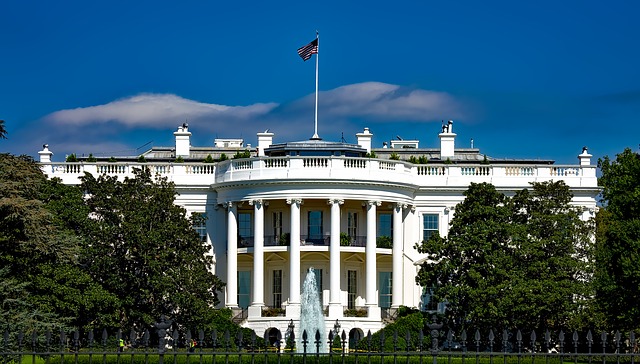While Democratic presidential nominee Joe Biden has attracted attention for a $775 billion plan to expand community-based senior services, the former vice president’s campaign has also laid out a wish list for nursing home reform in the wake of COVID-19.
With a week to go before Election Day, we take a closer look at what a Biden administration might mean for post-acute and long-term care.
“It did not have to be this bad,” the Biden-Harris campaign wrote of the coronavirus pandemic’s impact on nursing home residents and staff in its official policy plan for nursing home regulations.
The Trump administration has followed a fairly standard Republican playbook for its oversight of nursing homes, with a stated focus on reducing perceived paperwork burdens and a preference for public-private partnerships in solving major logistical problems — such as a plan to rely on retail pharmacy heavyweights CVS and Walgreens to handle the eventual distribution of a COVID-19 vaccine to nursing homes.
Centers for Medicare & Medicaid Services (CMS) administrator Seema Verma, for instance, last year called for more tailored enforcement of federal nursing home regulations, arguing that the highest-ranking facilities should be inspected less frequently in order to better focus enforcement resources on the poor performers who need the most attention.
“We propose to survey top performing facilities every 30 months, with no more than 36 months between surveys of any single facility,” she wrote back in August 2019. “We would reinvest the savings to strengthen our oversight and quality improvement efforts for facilities that are low performers.”
The administration’s laissez-faire strategy has drawn criticism from resident advocates, who have pointed to the relaxation of rules around dedicated infection preventionists (IPs) and an overall decline in fines as contributing factors to the staggering number of COVID-19 infections and deaths in nursing homes.
CMS has touted the assessment of $15 million in fines related to infection control and COVID-19 data reporting rules, while also making routine staff coronavirus testing a baseline requirement for participation in Medicare and Medicaid — and implementing new fines for non-compliance. CMS and the Department of Health and Human Services (HHS) have directed point-of-care testing devices to most nursing homes across the country, though the program has raised concerns over false positives and the ongoing costs of routine testing.
But the Biden campaign largely agrees with the criticisms of the federal response to COVID-19 in nursing homes, accusing the Trump administration of rolling back key safety protections instituted during the Obama administration and failing to provide sufficient supplies of tests and personal protective equipment (PPE).
The Democratic presidential hopeful would boost both the frequency and scope of federal nursing home surveys, while also moving to “restore levels of penalties needed to obtain compliance with quality standards.”
Other highlights of the Biden-Harris proposal include:
- Requiring a mandatory “infection disease specialist” at every facility
- Protecting workers’ right to form and join unions
- Directing the Occupational Safety and Health Administration (OSHA) to implement an emergency temporary standard for nursing home workplace safety
- Requiring the Department of Health and Human Services (HHS) Office of the Inspector General (OIG) to audit nursing home cost reports and ownership data, specifically by using the Provider Enrollment Chain and Ownership System (PECOS)
- Invoking the Defense Production Act to increase supplies of PPE
The plan calls for the restoration of an Obama-era ban on forced arbitration agreements for nursing home residents, which Trump’s CMS formally reversed last summer. The issue remains a frequent source of political strife: Advocates and some lawmakers argue that requiring residents to enter into such agreements deprives them of their legal right to a fair trial in the case of abuse or neglect, while the industry has framed the deals as a way to reduce liability expenses and provide quicker resolutions for complaints.
In a similar vein, the Biden plan takes aim at COVID-related liability protections for nursing homes, with the candidate promising to “reject limitations of liability that make it impossible to ensure individuals harmed or killed due to nursing home negligence can hold providers accountable by pursuing legal remedies.”
State-level laws aimed at curbing lawsuits against nursing home operators and other health care providers have often been at the center of media and public scrutiny of the space; lawmakers in New York voted this past summer to roll back liability protections in the wake of sharp criticism from lawmakers and advocates.
A federal liability shield may still be included in a secondary stimulus package still in the works on Capitol Hill, though it remains unclear whether any plan will even reach a vote in Congress prior to the election.
Mark Parkinson, president and CEO of nursing home trade group the American Health Care Association, expressed concerns last month about a future without a federal law restricting lawsuits against providers.
“If we don’t get it … I don’t have a clear picture of where we’re headed,” he said. “It’ll be quite bad.”
Finally, Biden pointed to his previously announced plan to inject $775 billion into home- and community-based services as another pillar of his vision for long-term care reform.
“As they work to protect those living in nursing homes and long-term care facilities, a Biden-Harris administration will also work to end the institutional bias in the Medicaid program by expanding access to home and community based services, affirm the commitment to people with disabilities and seniors to be able to self-direct services, work with Congress to secure permanent reauthorization of and invest in the Money Follows the Person (MFP) program, and fully implement the HCBS Final Rule,” the campaign noted.



